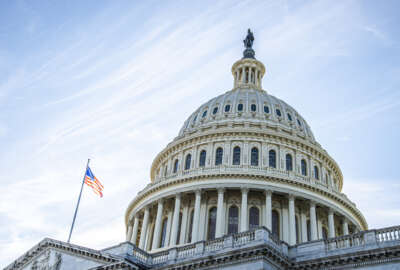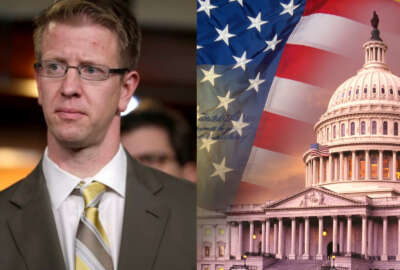Y2K offers lessons for cybersecurity
One cyber bill before Congress would create a cyber committee much like the Y2K Conversion committee to help deal with cybersecurity issues. John Koskinen, former...
wfedstaff | June 3, 2015 2:07 pm
Melissa Hathaway, the former Cyber Coordination Executive in the Obama administration, spoke last week to In Depth about a report on cybersecurity-related bills in Congress.
One such bill includes a provision to create a special cybersecurity committee, much like the one that tackled the Y2K bug more than a decade ago.
In Depth spoke with John Koskinen, former chairman of the Council on Year 2000 Conversion, to find out how his committee was set up and why it was successful.
While the changeover to the year 2000 presented a specific timeline and specific threats to computer systems, cybersecurity issues are not as well defined and present problems over the long-term, said Koskinen.
“Cybersecurity will be with us forever.”
Despite the differences, Koskinen said there are Y2K lessons that can be applied to cybersecurity.
Partnership with private sector
An executive order signed by President Clinton established the Y2K Council in 1998.
The government’s first step was to form partnerships with private sector industries from all segments of the economy. The biggest challenge, Koskinen said, was creating working groups in each of these sectors.
These working groups relied on companies to communicate and help each other rather than have the government give directives.
Instead of legislating a response to Y2K, the federal government acted as “a catalyst to organizing the industry response” and to “energize people’s own self-interest,” Koskinen said.
“We were able to create an image that everyone was in it together, nobody wanted to fail, and everybody had an interest in everybody else’s success,” Koskinen said.
Keep the public informed
To avoid public panic — for example, people rushing to the bank to take out all their money — the Y2K working groups provided updates to the public.
“At the same time we were trying to make sure we didn’t have major system failures, we were also trying to make sure we didn’t have a major overreaction by the public,” Koskinen said.
Even as the Y2K preparation was in its early stages, it was still important to let the public know of the Council’s progress, Koskinen said, adding that people ultimately were confident that the Y2K work would be completed in time.
Koskinen is the former deputy director for management at the Office of Management and Budget and former deputy mayor of Washington, D.C.
Jolie Lee is the author of this post. Email her at jlee@federalnewsradio.com.
Copyright © 2024 Federal News Network. All rights reserved. This website is not intended for users located within the European Economic Area.





